May 1 stands as one of history’s most eventful days, witnessing the rise and fall of empires, groundbreaking discoveries, and moments that shaped our modern world across centuries of human achievement.
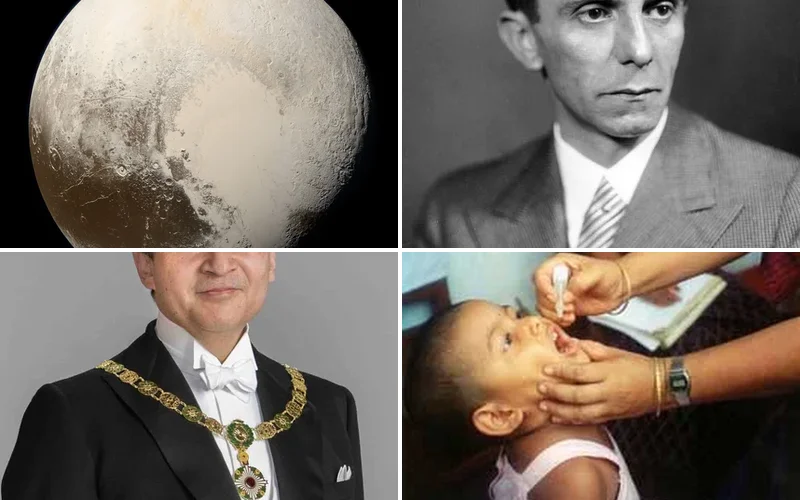
Politics and Government Events on May 1
1945 – German Radio Announces Hitler’s Death
German radio stations broadcast news of Adolf Hitler’s death, falsely claiming he “fell at his command post fighting to the last breath against Bolshevism.” The Soviet flag simultaneously rises over the Reich Chancellery by Stalin’s direct order.
This propaganda broadcast marked the Nazi regime’s final attempt to control the narrative of their leader’s demise. The dramatic announcement coincided with the Red Army’s complete capture of Berlin’s governmental center.
1961 – Castro Proclaims Cuba Socialist Nation
Cuban Prime Minister Fidel Castro officially declares Cuba a socialist nation and permanently abolishes democratic elections. This proclamation solidifies the island’s transformation from a capitalist democracy to a communist state.
Castro’s announcement strengthens Soviet influence in the Western Hemisphere during the height of Cold War tensions. The decision permanently alters Cuba’s political landscape and international relationships.
1997 – Labour Party Wins British Election
The Labour Party achieves a decisive victory in Britain’s general election, bringing Tony Blair to power as Prime Minister. This landslide victory ends eighteen years of Conservative rule under Margaret Thatcher and John Major.
Blair’s “New Labour” movement represents a fundamental shift in British politics toward centrist policies. The election results reshape the United Kingdom’s domestic and foreign policy directions for the next decade.
2004 – European Union Expands Eastward
Ten nations join the European Union in the largest expansion in the organization’s history. Cyprus, Czech Republic, Estonia, Hungary, Latvia, Lithuania, Malta, Poland, Slovakia, and Slovenia celebrate their membership at the Irish President’s residence in Dublin.
This historic enlargement extends EU influence deep into former Soviet territories and strengthens European unity. The expansion represents a significant geopolitical shift following the Cold War’s conclusion.
2019 – Naruhito Becomes Emperor of Japan
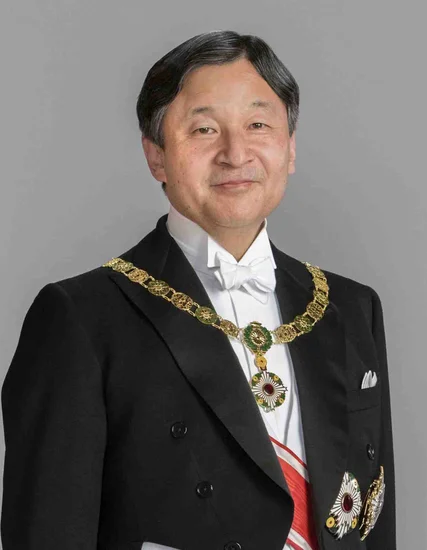
Crown Prince Naruhito ascends to Japan’s chrysanthemum throne, succeeding his father Emperor Akihito. The ceremony officially begins the Reiwa era, marking a new chapter in Japanese imperial history.
Akihito’s unprecedented abdication allows for a peaceful transition of imperial power in modern Japan. The new emperor’s reign begins amid challenges including an aging population and evolving international relationships.
Military and Naval History on May 1
1915 – RMS Lusitania Begins Final Voyage
The RMS Lusitania departs New York City for her 202nd and final Atlantic crossing. Six days later, a German U-boat torpedoes the luxury liner off Ireland’s coast, killing 1,198 passengers and crew.
This tragic voyage becomes a pivotal moment in turning American public opinion against Germany. The ship’s sinking helps propel the United States toward eventual entry into World War I.
1960 – U-2 Spy Plane Shot Down
Francis Gary Powers’ Lockheed U-2 reconnaissance aircraft is shot down over Soviet territory, creating a major diplomatic crisis. The incident occurs during a top-secret CIA surveillance mission over the Sverdlovsk Oblast.
Powers’ capture exposes American espionage operations and derails planned summit talks between superpowers. The incident escalates Cold War tensions and leads to prisoner exchanges between the United States and Soviet Union.
1982 – Operation Black Buck Begins
The Royal Air Force launches Operation Black Buck, attacking Argentine positions during the Falklands War. These long-range bombing missions demonstrate Britain’s determination to reclaim the disputed South Atlantic islands.
The operation showcases RAF capabilities in conducting strikes across vast oceanic distances. These attacks mark the beginning of sustained British military operations to retake the Falklands from Argentine occupation.
1945 – Mass Suicide in Demmin
Up to 2,500 German civilians die in mass suicide events following the Red Army’s advance into Demmin. The tragedy reflects the desperation and terror experienced by German populations during the war’s final days.
Local residents choose death over feared Soviet occupation and potential retribution for Nazi crimes. This event represents one of the war’s most devastating civilian casualties on German soil.
Science and Discovery Milestones on May 1
1930 – Pluto Receives Official Name

Astronomer Vesto Slipher officially proposes “Pluto” as the name for the newly discovered celestial body in the Lowell Observatory Observation Circular. The name, suggested by eleven-year-old Venetia Burney, quickly gains widespread acceptance.
This naming marks the completion of our solar system’s planetary roster as understood for decades. Pluto’s discovery expands humanity’s knowledge of the outer solar system’s composition and structure.
1956 – Polio Vaccine Released to Public

Jonas Salk’s revolutionary polio vaccine becomes available to the general public, offering hope against one of childhood’s most feared diseases. The vaccine’s release marks a triumph of medical science over a devastating paralytic illness.
Mass vaccination campaigns immediately begin across the United States and other developed nations. This breakthrough saves countless children from paralysis and death while demonstrating the power of coordinated public health efforts.
1978 – First Solo Journey to North Pole
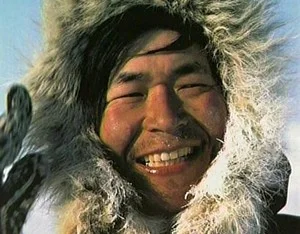
Japanese explorer Naomi Uemura becomes the first person to reach the North Pole traveling alone by dog sled. This extraordinary achievement demonstrates human endurance and determination in Earth’s most challenging environment.
Uemura’s successful journey opens new possibilities for polar exploration and scientific research. His accomplishment inspires future generations of adventurers and researchers studying Arctic conditions.
1999 – George Mallory’s Body Found
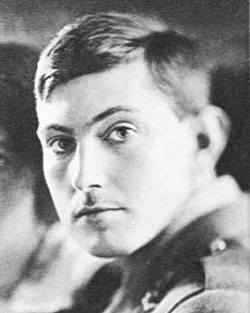
British climber George Mallory’s remains are discovered on Mount Everest, seventy-five years after his disappearance during the 1924 expedition. The find reignites debates about who first reached the world’s highest summit.
Mallory’s preserved body provides new clues about early Everest climbing attempts and the challenges faced by pioneer mountaineers. The discovery adds another chapter to mountaineering history’s greatest mystery.
Cultural and Arts Events on May 1
1931 – Empire State Building Dedicated
The Empire State Building officially opens in New York City, becoming the world’s tallest structure and an enduring symbol of American architectural achievement. The Art Deco skyscraper represents the pinnacle of 1930s engineering and design.
Construction crews completed this 102-story marvel in just 410 days during the Great Depression. The building immediately becomes a cultural icon, featured in countless films and serving as a symbol of New York’s skyline.
1975 – Särkänniemi Amusement Park Opens

Finland’s Särkänniemi Amusement Park opens its doors in Tampere, bringing modern entertainment to northern Europe. The park combines traditional Finnish culture with international amusement park attractions.
This opening represents Finland’s growing leisure industry and modernization efforts during the 1970s. The park becomes a major tourist destination and cultural gathering place for Finnish families.
Religious and Social Events on May 1
1946 – Pilbara Strike Begins
Indigenous Australian workers begin a three-year strike in the Pilbara region, demanding fair wages and better working conditions. This labor action becomes one of the longest strikes in Australian history.
The strike highlights systemic discrimination against Aboriginal workers in the pastoral industry. This courageous stand helps advance Indigenous rights and brings international attention to Australia’s treatment of its native peoples.
2011 – Pope John Paul II Beatified
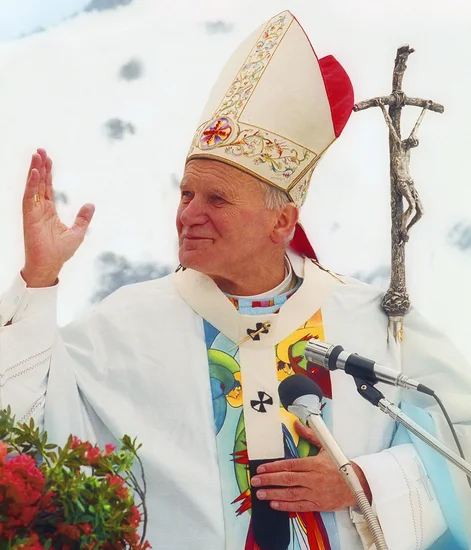
Pope Benedict XVI beatifies his predecessor, John Paul II, in a ceremony attended by millions of faithful worldwide. This beatification moves the beloved Polish pope one step closer to sainthood.
The ceremony celebrates John Paul II’s contributions to ending communism and strengthening Catholic faith globally. His beatification reflects the Church’s recognition of his extraordinary spiritual leadership and global impact.
2009 – Sweden Legalizes Same-Sex Marriage
Sweden becomes one of the first European nations to legalize same-sex marriage, extending full marital rights to LGBTQ+ couples. This progressive legislation reflects Sweden’s commitment to equality and human rights.
The law’s passage positions Sweden as a leader in LGBTQ+ rights within the European Union. This milestone influences similar legislation across Europe and strengthens the global movement for marriage equality.
Business and Economic Events on May 1
1925 – All-China Federation of Trade Unions Founded
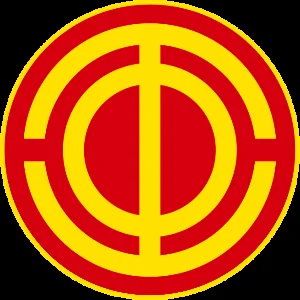
The All-China Federation of Trade Unions officially establishes itself as the primary labor organization in China. Today, this organization represents 134 million members, making it the world’s largest trade union.
The federation’s founding reflects China’s growing industrial workforce and organized labor movement. This institution plays a crucial role in China’s economic development and worker protection efforts.
1971 – Amtrak Takes Over Passenger Rail Service
The National Railroad Passenger Corporation, known as Amtrak, assumes control of America’s passenger rail operations. This government-sponsored corporation attempts to revitalize declining passenger train service across the United States.
Amtrak’s creation represents a last-ditch effort to preserve passenger rail transportation in the automobile age. The corporation faces immediate challenges in modernizing aging infrastructure and competing with airlines and highways.
2024 – Loblaw Boycott Begins
Canadian consumers launch a widespread boycott against retail giant Loblaw Companies, protesting high grocery prices and corporate practices. The grassroots movement demonstrates consumer power in addressing food affordability concerns.
This boycott reflects growing frustration with corporate concentration in Canada’s grocery sector. The action sparks national debate about food pricing and corporate responsibility during economic uncertainty.
Transportation and Infrastructure on May 1
1957 – Vickers Viking Crashes at Blackbushe
A Vickers VC.1 Viking aircraft crashes while attempting to return to Blackbushe Airport in Yateley, killing thirty-four people aboard. The tragedy highlights ongoing aviation safety challenges in the early jet age.
This crash prompts investigations into aircraft safety protocols and emergency procedures. The incident contributes to improved aviation safety standards and emergency response procedures at British airports.
Sports and Recreation on May 1
1994 – Ayrton Senna Dies in Racing Accident
Three-time Formula One champion Ayrton Senna dies in a crash during the San Marino Grand Prix at Imola. The Brazilian driver’s death shocks the racing world and leads to extensive safety reforms in motorsport.
Senna’s tragic death occurs during one of Formula One’s darkest weekends, following Roland Ratzenberger’s fatal crash the previous day. The sport immediately begins implementing comprehensive safety improvements to prevent similar tragedies.
1947 – Portella della Ginestra Massacre

Bandit leader Salvatore Giuliano attacks May Day celebrations in Sicily, killing eleven people and wounding thirty-three others. This violent assault targets peaceful Labor Day gatherings and terrorizes local communities.
The massacre reflects post-war Sicily’s complex political situation and the separatist movement’s violent tactics. This tragic event influences Italian politics and highlights the challenges of maintaining order in post-war southern Italy.
1970 – Vietnam War Protests Erupt
Massive protests sweep across the United States following the announcement of American and South Vietnamese forces entering Cambodia. These demonstrations represent the largest anti-war protests in American history.
The protests reflect growing opposition to expanding military involvement in Southeast Asia. Student demonstrations particularly intensify on college campuses, leading to confrontations with authorities and tragic incidents like the Kent State shootings.
Notable Births on May 1
1923 – Joseph Heller, American Novelist
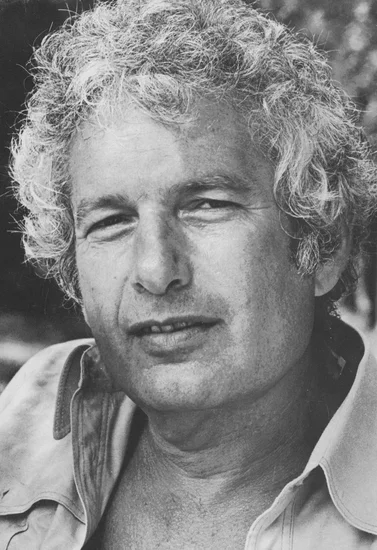
Joseph Heller entered the world in Brooklyn, New York, destined to become one of America’s most celebrated satirical writers. His childhood experiences during the Great Depression shaped his understanding of institutional absurdity.
Heller’s masterpiece “Catch-22” revolutionizes war literature with its dark humor and circular logic. The novel’s title enters common usage, describing impossible bureaucratic situations that trap individuals in paradoxical circumstances.
1946 – Joanna Lumley, English Actress
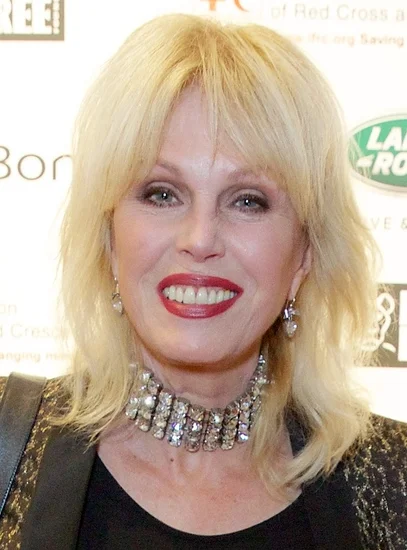
Joanna Lumley was born in Kashmir, India, beginning a life that would span acting, activism, and adventure. Her multicultural upbringing influences her later humanitarian work and global perspective.
Lumley achieves international fame as Patsy Stone in “Absolutely Fabulous” while championing Gurkha rights and environmental causes. Her versatile career encompasses serious drama, comedy, and passionate advocacy for social justice.
1969 – Wes Anderson, American Director

Wes Anderson was born in Houston, Texas, developing an early fascination with visual storytelling and cinematic detail. His childhood love of model trains and dollhouses influences his distinctive directorial style.
Anderson creates a unique cinematic universe characterized by symmetrical compositions and quirky characters. Films like “The Grand Budapest Hotel” and “Rushmore” establish him as a master of whimsical, precisely crafted storytelling.
1975 – Marc-Vivien Foé, Cameroonian Footballer

Marc-Vivien Foé was born in Yaoundé, Cameroon, beginning his journey toward international football stardom. His powerful playing style and leadership qualities emerge early in his youth career.
Foé becomes a cornerstone of Cameroon’s national team and enjoys successful club careers in Europe. His tragic death during the 2003 Confederations Cup shocks the football world and highlights the physical demands of professional sport.
1982 – Jamie Dornan, Northern Irish Actor

Jamie Dornan was born in Belfast, Northern Ireland, initially pursuing modeling before transitioning to acting. His striking appearance and dramatic range quickly attract attention from casting directors.
Dornan gains international recognition through “Fifty Shades of Grey” and critically acclaimed performances in “The Fall.” His career demonstrates versatility across romantic drama, psychological thriller, and independent film genres.
Notable Deaths on May 1
1904 – Antonín Dvořák, Czech Composer
Antonín Dvořák died in Prague, leaving behind a remarkable legacy of symphonic and chamber music. His compositions bridge European classical traditions with American and Bohemian folk influences.
Dvořák’s “New World Symphony” remains one of classical music’s most beloved works, inspired by his time in America. His death marks the end of an era in Romantic classical music and Czech cultural expression.
1945 – Joseph Goebbels, Nazi Propaganda Minister
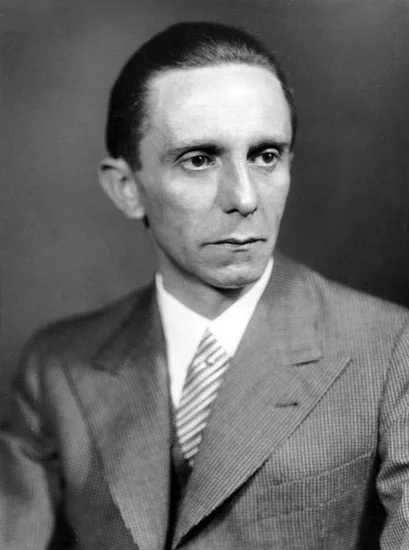
Joseph Goebbels died in Hitler’s bunker as the Third Reich collapsed around him. His mastery of propaganda techniques helps sustain Nazi power while spreading hatred and facilitating genocide.
Goebbels’ death ends one of history’s most destructive propaganda campaigns and manipulative media operations. His techniques continue to serve as warnings about the dangers of unchecked political messaging.
1994 – Ayrton Senna, Brazilian Racing Driver

Ayrton Senna died at Imola circuit during the San Marino Grand Prix, ending one of Formula One’s greatest careers. His aggressive driving style and perfectionist approach revolutionize competitive racing.
Senna’s death prompts comprehensive safety reforms in motorsport and transforms how racing organizations approach driver protection. His legacy inspires generations of drivers while highlighting the inherent dangers of high-speed competition.
2021 – Olympia Dukakis, American Actress
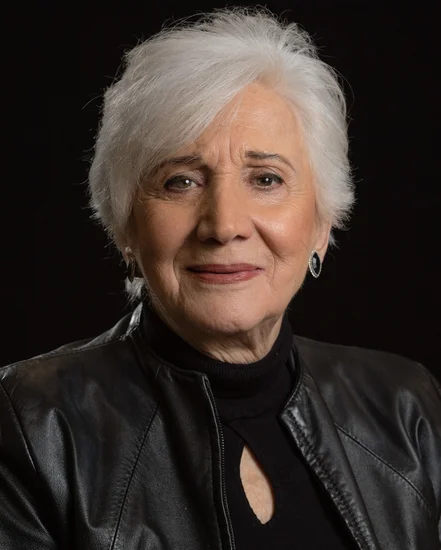
Olympia Dukakis died in New York, concluding a distinguished career spanning theater, film, and television. Her powerful performances often portray strong, complex women facing life’s challenges.
Dukakis wins an Academy Award for “Moonstruck” while maintaining her commitment to serious theatrical work. Her death represents the loss of a versatile performer who bridges commercial success with artistic integrity.
Holidays and Observances on May 1
International Workers’ Day
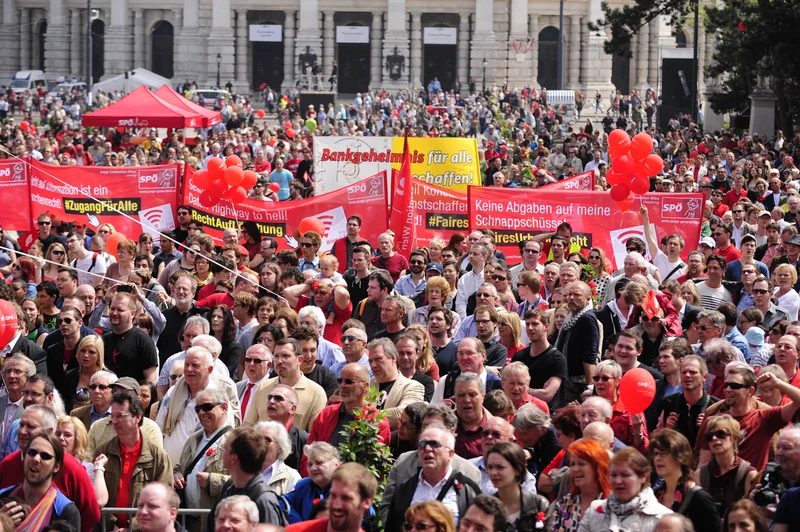
International Workers’ Day celebrates labor movements worldwide and commemorates workers’ struggles for fair wages and better conditions. This global observance originated from the 1886 Haymarket affair in Chicago.
The holiday demonstrates international solidarity among working people across cultural and national boundaries. Many countries mark this day with parades, demonstrations, and celebrations of workers’ contributions to society.
Lei Day in Hawaii
Hawaii celebrates Lei Day with traditional flower garland ceremonies and cultural festivities throughout the islands. This beloved tradition honors Hawaiian heritage and the natural beauty of tropical flowers.
The celebration brings communities together to share traditional crafts, music, and dance. Lei Day preserves Hawaiian cultural practices while welcoming visitors to experience authentic island traditions.
Constitution Day
Argentina, Latvia, and the Marshall Islands observe Constitution Day, commemorating the founding documents that establish their governmental systems. These celebrations reinforce democratic values and national identity.
Constitution Day reminds citizens of their rights and responsibilities within democratic societies. The observance encourages civic engagement and appreciation for constitutional governance principles.
Beltane
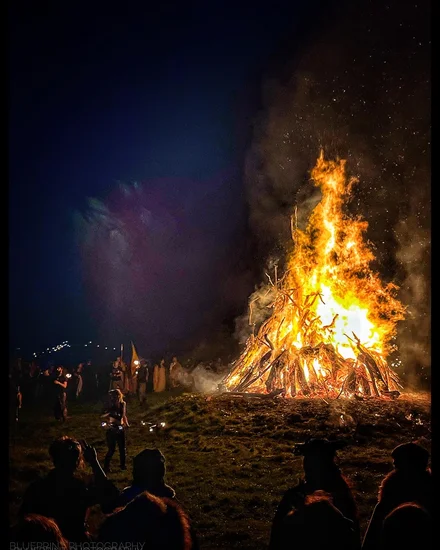
Gaelic communities celebrate Beltane, marking the beginning of summer and the fertility of the earth. This ancient Celtic festival includes bonfires, dancing, and rituals welcoming the growing season.
Beltane celebrations connect modern communities with ancestral traditions and natural cycles. The festival emphasizes renewal, growth, and the interconnection between human communities and the natural world.
